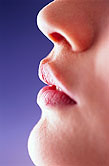
TUESDAY, May 26, 2015 (HealthDay News) — As emotions go, happiness usually hides in plain sight: seen in a broad smile, heard in a raucous laugh, felt in a big hug.
But new research suggests there may be a less obvious way to pick up on another person’s positive vibes: smell.
According to a team of European researchers, happiness may generate chemicals that get secreted in sweat, and that sweat signal gets sniffed by those around us.
The experiments also suggest that we not only breathe in the upbeat emotions of others, but by doing so we actually become happier ourselves.
“Human sweat produced when a person is happy induces a state similar to happiness in somebody who inhales this odor,” said study co-author Gun Semin, a research professor in the department of psychology at Koc University in Istanbul, Turkey, and the Instituto Superior de Psicologia Aplicada in Lisbon, Portugal.
The findings were published recently in Psychological Science.
The researchers noted that prior research has already demonstrated that negative emotions, such as fear or disgust, can be communicated via odors in sweat.
To see whether the same holds true for the happier feelings, Semin’s team gathered sweat samples from 12 young men after each watched videos designed to induce a variety of emotions, including happiness and fear. All the men were healthy, drug-free nonsmokers, and none drank, consumed smelly foods or engaged in sexual activity during the study period.
In turn, 36 equally healthy young women were engaged to smell the samples while their reactions were monitored. The smell group, explained investigators, was confined to women because women typically have a better sense of smell than men and are also more sensitive to emotional signaling.
After analyzing the facial expressions of the smell group, the research team concluded that there does, in fact, appear to be a so-called “behavioral synchronization” between a sweating person’s emotional state, the sweat generated, and the reaction of the person who sniffs that sweat.
Specifically, that meant that the faces of women who smelled “happy sweat” displayed facial muscle activity deemed to be representative of happiness.
Sweat didn’t always produce a contagious response in the smeller, however. For example, those smellers who verbalized having a “pleasant” or “intense” reaction to a sweat sample did not manifest those reactions in their facial expressions.
What is it exactly that makes “happy sweat” infectious?
Semin, who is also professor of social and behavioral sciences at Utrecht University in the Netherlands, acknowledged that “we have not demonstrated what the nature of the chemical compound is in sweat.”
Pamela Dalton is an olfactory (smell sense) scientist with the Monell Chemical Senses Center in Philadelphia. She said she found the findings “a little surprising.”
However, “what is interesting about this study is that it suggests a positive emotion can be communicated — which in my opinion is far less important in human evolution and behavior than to be able to transmit and recognize a negative emotion, such as fear or anger,” Dalton said.
For that reason, Dalton said she “would expect the ability to communicate a happy emotion to [actually] be less potent than the ability to transmit a negative emotion.”
But Andreas Keller, a research associate with The Rockefeller University in New York City, said the study findings make intuitive sense.
“Hearing happy people and seeing happy people makes you happier,” he said, “so the fact that smelling them would make you happier, too, is probably not so surprising.”
According to Keller, the next step “would be to find out what the chemical difference in fear sweat and happy sweat is that mediates these effects. This would open the door to study what is going on at a mechanistic level.”
More information
There’s more on the human sense of smell at the Social Issues Research Center.
Copyright © 2026 HealthDay. All rights reserved.

